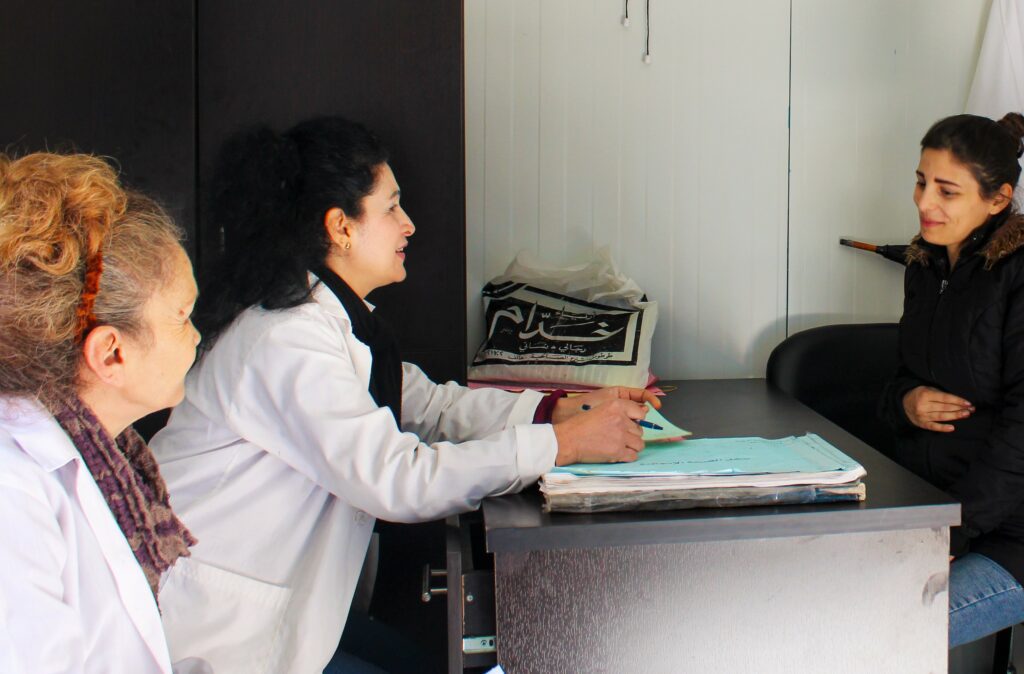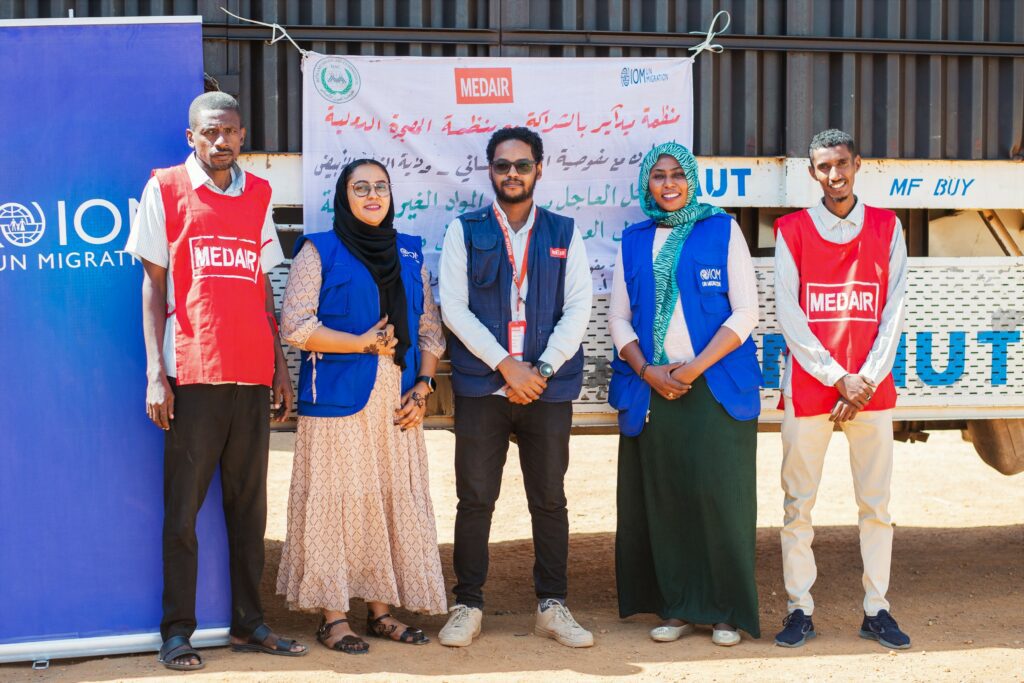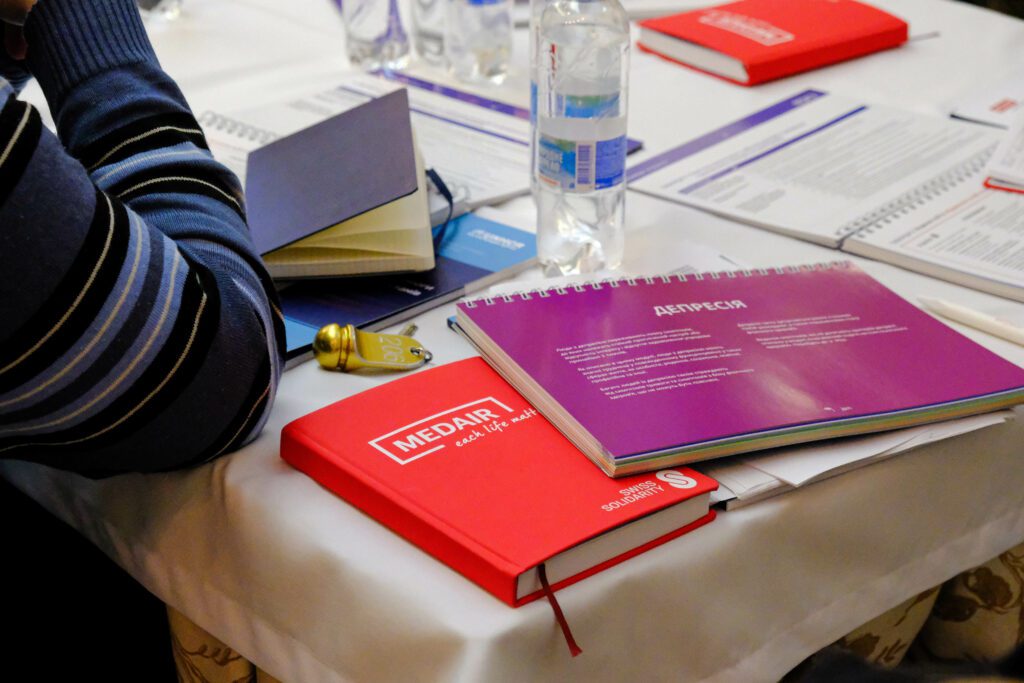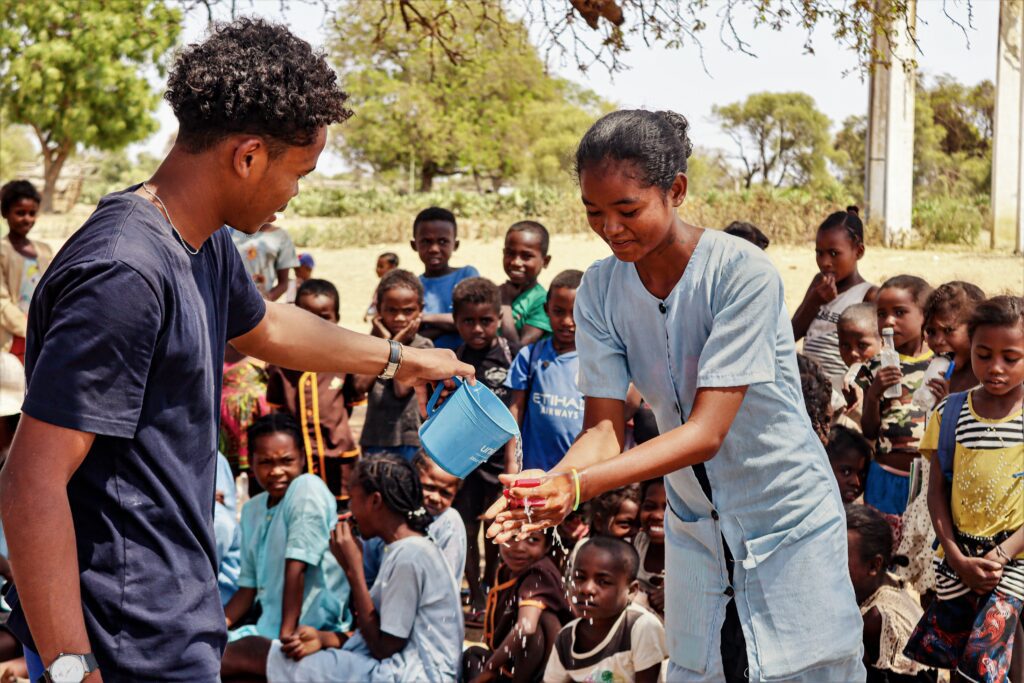After years of recent conflict and forced displacement, many South Sudanese people carry deep psychological scars. The trauma may be invisible to the human eye. Yet, it is everywhere. Only few have been left unscathed.
In this scarred nation, with a population of over 11 million people, there are only three trained psychiatrists and mental health services are scarce.
We asked Nyathioma, Mental Health and Psychosocial Support Project Manager, to share about her work, supporting people to recover from the trauma they have endured, and empowering them to rebuild their lives.
Why is integrating mental health and psychosocial support in humanitarian aid so important?
Thinking of people’s health, we tend to only look at what the eye can see. But there is more to the story. Our mental health, what is happening on the inside, is equally important. I believe that there is no health without mental health. People who experience psychological distress or trauma, may not be able to pursue their dreams or fully engage in community life.
The area in South Sudan where I work, has faced recurring conflict and violence for years. Many people have lost loved ones, and have had to leave their homes and livelihoods behind to flee the fighting. After years of violence, communities have been exposed to high levels of traumatic stress. And then there are also individuals who are affected by more severe mental health problems such as psychosis, depression, and epilepsy. Yet, there is nowhere to go for them.
In this context, providing nutrition services, shelter, and safe water is not enough for people to rebuild their lives. Mental health and psychosocial support is essential. It helps people and ultimately the community as a whole to cope and recover with dignity.
Can you share some insight into how you and your team help people heal emotionally?
We have established voluntary mothers’ groups guided by facilitators that are attended by close to 5,000 women, which provide a safe space for women processing traumatic events. Through these groups, the women can share about stressful experiences, life’s challenges, and feelings with each other. It makes them realise that they are not alone carrying heavy burdens, and it allows them to learn from each other on how they can cope with traumatic stress, grief, and anxiety
Generally, mental health and psychosocial support activities should be linked to already existing community structures, which makes them more effective and helpful. These mothers’ groups are often built on established relationships between women in the community. This means we can help create support networks that are not reliant on outside help, but really strengthen the community and its individual members from within, increasing the likelihood for lasting and sustainable support.
We have also provided our clinic staff on the ground with the mhGAP-HIG training in delivering mental health and psychosocial support services. This training is designed by WHO and UNHCR specifically for health workers in humanitarian settings who are not specialised in mental health. They are now able to assess and manage mental, neurological, and substance use conditions.
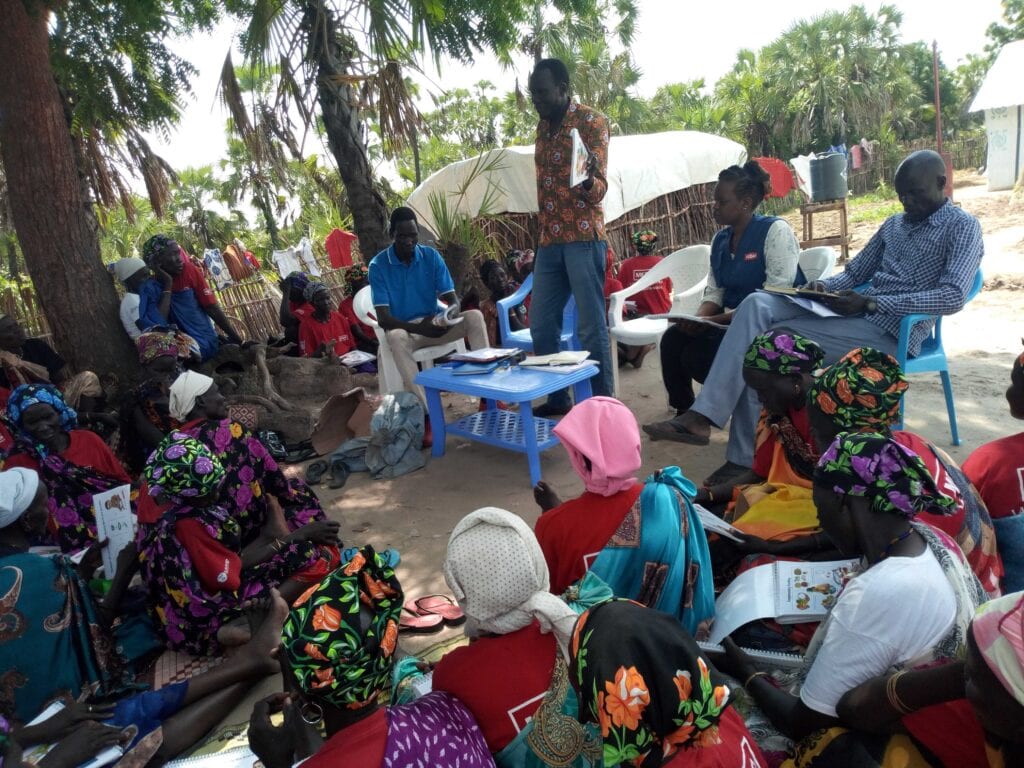 Photo: Nyathioma (middle) attending a mothers’ group session facilitated by Medair colleagues James and Puol (pre COVID-19)
Photo: Nyathioma (middle) attending a mothers’ group session facilitated by Medair colleagues James and Puol (pre COVID-19)
What difference does the support you provide make?
We hear stories of how people’s lives have been impacted through psychosocial care. Women who attend the mothers’ support groups share with us that when they have flashbacks of what happened to them in the past, they are now able to process that better. They tell us they are now aware of healthy coping mechanisms, which helps them avoid resorting to negative ways of dealing with stress, such as isolation. As the mothers become more resilient, it has a knock-on effect on the entire family and helps all of them to recover and thrive.
The lives of people with mental health problems are also significantly impacted. One woman in the community did not have much control over her behaviour, and would often experience hallucinations. Her husband came to us for help and after trained clinic staff assessed her, she was diagnosed with psychosis and given medication. Now, she is able to participate in family life and take care of her children. It has made such a difference to this woman and her family. We also have quite a few people who attend our clinic who suffer from epilepsy. Their lives are hugely improved after receiving medication.
Overall, when people see community members getting better when receiving treatment, there is demystification around mental health problems, and an appreciation that it is not the result of a religious curse for example.
There is a real sense of hope instilled as the community heads towards recovery and beyond.
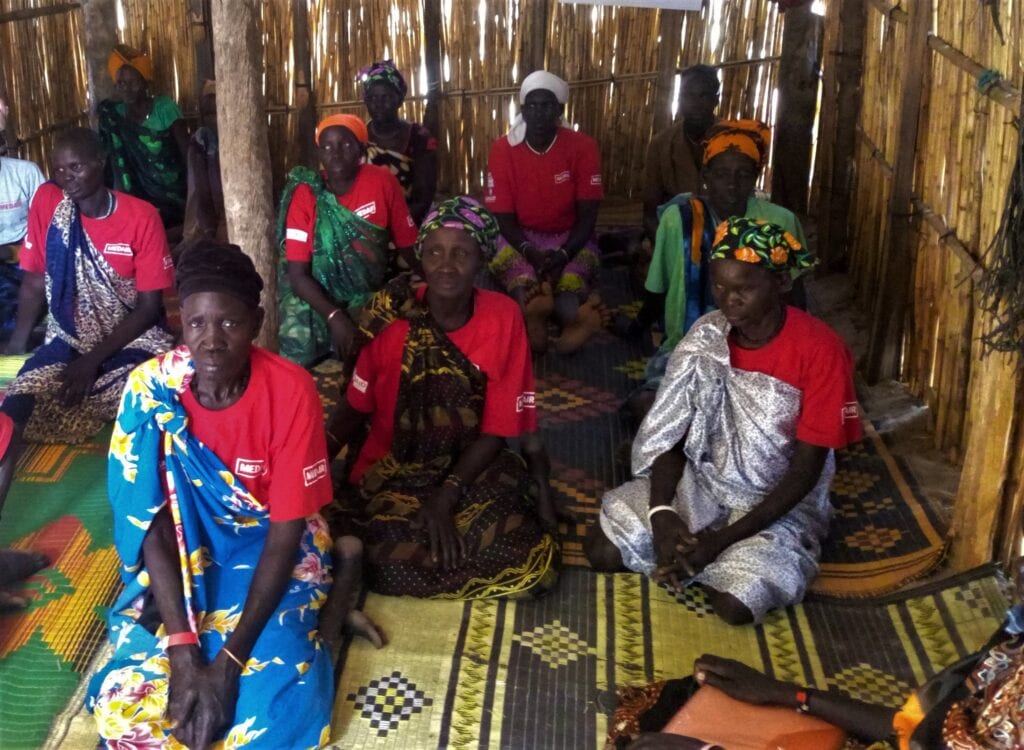 Photo: some of the women from a mothers’ support group set up by Medair (pre-COVID-19)
Photo: some of the women from a mothers’ support group set up by Medair (pre-COVID-19)
Can you share about a challenge you encounter when reaching out to people?
The area where I work is remote and supervision is difficult. Most areas cannot be accessed during the rainy season. There is also no telephone or internet network. Patients sometimes have to travel for multiple hours or even days to access mental health services at our clinics. Generally, this is not easy and brings the risk that people stop using our much-needed mental health and psychosocial support services.
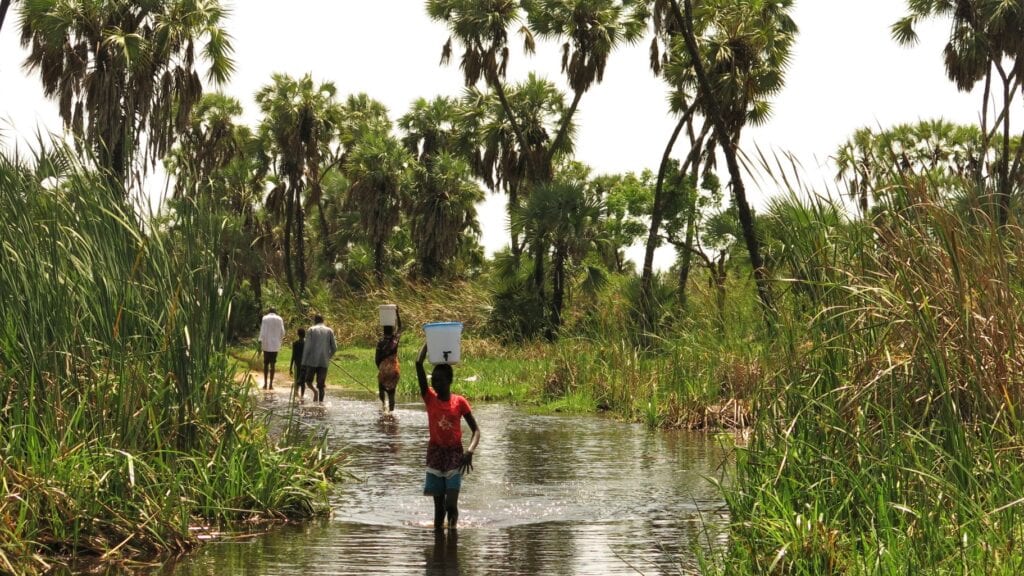 Photo: the area where Nyathioma works, is remote and hard to reach
Photo: the area where Nyathioma works, is remote and hard to reach
On World Mental Health Day, what does the world need to know about mental health?
The theme for World Mental Health Day this year is ‘Mental Health for All; Greater Investment – Greater Access’
With the current COVID-19 global pandemic, we are reminded of the importance of mental health. A lot of people have had to adjust to new realities of health, social and community interaction, livelihoods, and education. Many have experienced increased levels of fear, anxiety, grief, and even depression. Each of us, in our own small ways, can prioritise caring for our own mental health and that of those around us. It is my hope that we will all use what we have learned from this season to identify opportunities to invest more in mental health, and jointly work towards ensuring that mental health, as a human right, is available for all.
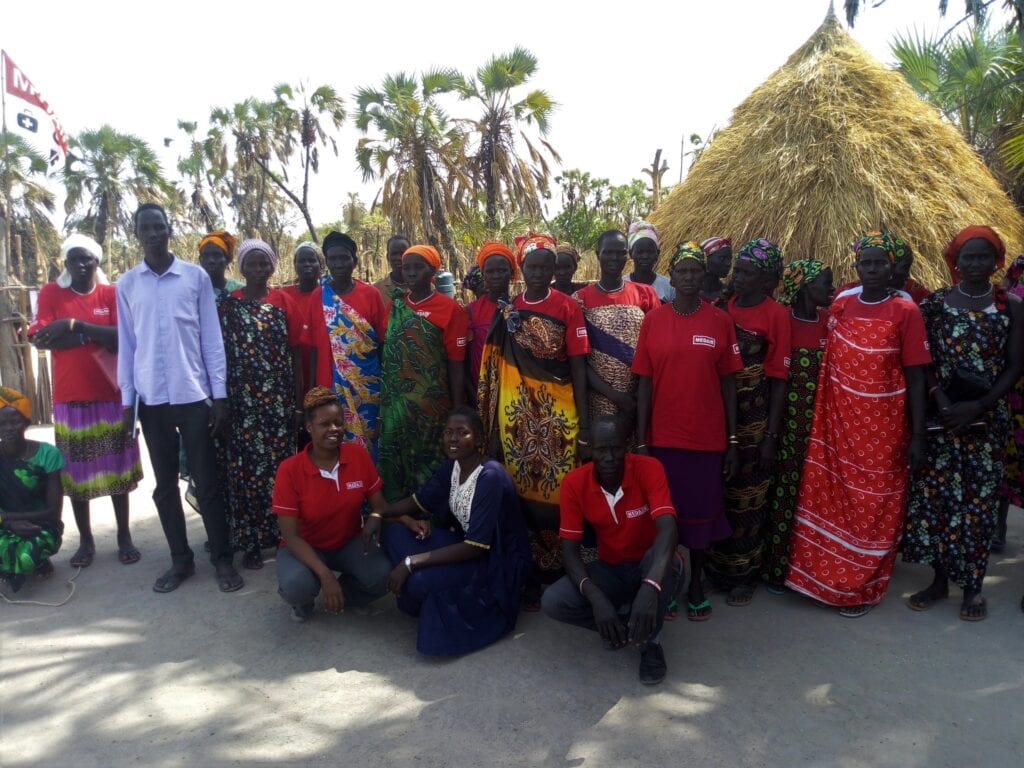 Photo: Some of Medair’s Psychosocial Support staff and women from the mothers’ groups (pre-COVID-19)
Photo: Some of Medair’s Psychosocial Support staff and women from the mothers’ groups (pre-COVID-19)
What drives and motivates you to do this work?
I’ve always been intrigued by how the state of our mental wellbeing can have such a significant impact on our behaviour and our path in life. After graduating in psychology in 2013, I initially worked in a health facility in my home area in Nairobi. But I realised that I was more drawn to people in underserved communities, and I joined a humanitarian response in Dadaab refugee camp. After that, I moved to work in South Sudan.
There are many people here in South Sudan who have been through devastating situations and are currently facing a deep level of hardship. Yet, the human spirit is resilient and mental health and psychosocial interventions have a real capacity for bringing positive change in people’s lives. In South Sudan, I’m often inspired by the hopeful spirit I see amongst the people we serve, and the passion of my colleagues from the area who regularly go the extra mile to improve the wellbeing of their community.
Medair’s Mental Health and Psychosocial Support services in South Sudan are funded by UK aid from the UK government, the United States Agency for International Development (USAID), and private donors.
This content was produced with resources gathered by Medair field and Global Support Office staff. The views expressed herein are those solely of Medair and should not be taken, in any way, to reflect the official opinion of any other organisation.


